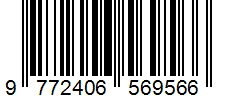Cartesian Doubt Encourages Critical Thinking in Education
DOI:
https://doi.org/10.36232/interactionjournal.v12i1.172Keywords:
Cartesian Doubt, Critical Thinking, Education, Method of Doubt, René Descartes, Critical ReflectionAbstract
Critical thinking is a fundamental competency in modern education, enabling students to filter information, evaluate arguments, and make logical decisions. René Descartes, through the method of doubt (Cartesian Doubt), offers a systematic approach to building solid knowledge. This article analyzes the relevance of Descartes' method of doubt to education through three steps: theoretical, reflective, and applied. The study found that the principle of "Cogito, ergo sum" encourages students to think independently, be healthily skeptical, and reflect on information. Descartes' method of doubt can be applied through inquiry-based learning, reflective curriculum design, and critical analysis-based evaluation. These findings provide important contributions to educational strategies oriented toward the development of critical thinking skills in the era of globalization.








